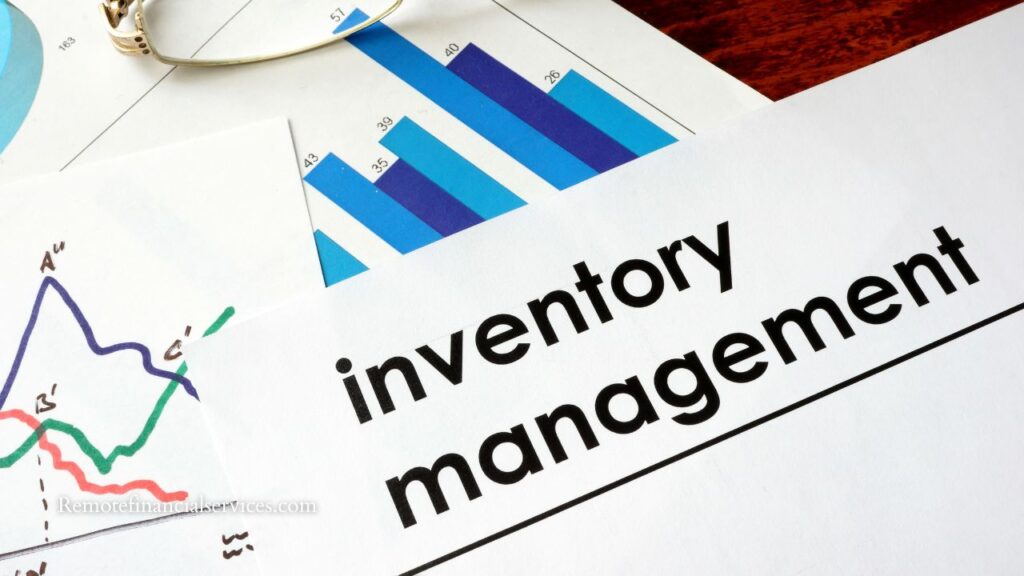Inventory is one of the most important assets in your company; it is not only a list of goods kept in your storage. Especially for small firms trying to negotiate the tightrope between supply and demand, good inventory management can make all the difference between profit and loss. With a solid inventory management systems for small businesses, you get not just control over stock but also useful insights that can affect your overall financial strategy and daily bookkeeping. Maintaining lean, agile, and profitable companies handling physical items depends on knowing how inventory moves and how it relates to financial records.
What Is an Inventory Management System?
An inventory management system is a computerized tool used by companies to monitor orders, sales, deliveries, and inventory levels. Whether you run an online store or a brick-and-mortar one, having a centralized system with real-time stock movement helps guarantee that you never find yourself surprised. A good IMS offers complete awareness of what is on hand, what is running low, and what has been left on shelves far too long. That’s why well-designed inventory management systems for small businesses are becoming essential tools across industries.
Why Small Business Inventory Control Matters
Stakes are higher for tiny companies. Understocking causes lost sales and disgruntled customers; overstocking ties up critical cash flow. At first, manual tracking seems reasonable, but when your company expands—even modestly—the likelihood of human mistake, lost time, and misunderstanding rises dramatically. Here is where an inventory management systems for small businesses helps to lower risk and increase productivity by automating tasks and smoothly interacting with your financial operations.

Inventory Ties into Finance and Bookkeeping
Especially with regard to cash flow and balance sheets, inventory is intimately related to the financial situation of a company. Every time you buy, sell, or even damage stuff, your books change. Unrecorded shrinkage or miscounted inventory, for instance, can distort your financial records and lead to erroneous reporting. Your bookkeeping and inventory control together will produce a single source of truth.
This helps you record costs correctly, maintain accurate ledgers, and get a clear picture of your financial position at any given time. Emphasizing easy task management for accounting firms, Remote Financial Services stresses the need for regular inventory tracking for more effective bookkeeping procedures.
The Essentials of Inventory Management
Selecting an inventory management systems for small businesses depends on how financially and operationally fit it is. Search for capabilities including automated reordering, barcode scanning, real-time stock updates, dashboards, and—above all—integration with your current accounting system.
Integration guarantees that inventory data enters your financial reports straightforwardly, therefore lowering duplication and mistakes. As your company expands, systems enabling multiple location monitoring, role-based access, and vendor management provide even more value.
Various Inventory Management Systems: Types
There are several kinds of systems available, each designed to fit companies of differing sizes and sophistication. Although several small companies start using spreadsheets, these soon become ineffective and prone to mistakes. While manual methods could start well, they lack the accuracy and speed required in the competitive atmosphere of today.
Although desktop or cloud-based systems offer higher dependability, generally speaking, cloud-based platforms are more adaptable and expandable. These systems provide quick updates, access from any device, and simple connection with other company tools.
Why Would Small Businesses Want Cloud-Based Inventory Management?
Small businesses find especially appealing cloud-based inventory solutions. Cloud solutions provide access and economy without requiring costly hardware or on-site IT teams. Real-time syncing across devices allows your staff to control inventory from anywhere—from the stockroom or from a distance.
Many times, including built-in financial reporting, these systems can link to well-known bookkeeping applications such as QuickBooks, Xero, or Wave. For lean finance teams, that integration helps to lessen conflict between daily financial record-keeping and inventory tracking.
Typical Errors in Inventory Management (and How to Prevent Them)
When it comes to inventory, small business owners can find themselves in obvious traps. Bad forecasts might cause overordering that ties off money and clogs storage. Conversely, underordering can indicate unsatisfied consumers and lost sales prospects. Not handling dead stock—products that haven’t sold in a long time—which needlessly consumes space and resources is another frequent error.
Your finances may also be off-target depending on whether you neglect to employ software linking to your bookkeeping system or fail regular inventory audits. Staying on top of these concerns is easier when your inventory management is proactive and data-driven.
How Good Inventory Management Improves Financial Decision-Making
Proper tracking of inventory allows small companies to make quicker, wiser financial decisions. Knowing which products sell fast and which ones slow down, for instance, helps you allocate your money. Real-time data also lets you prevent seasonal income declines and forecast more precisely. Reliable inventory data entering your financial system helps to ease your monthly reconciliations and provide more clarity when you are creating reports for stakeholders or investors.
Best Practices in Small Business Inventory Control
To get the most from your IMS, follow a few established principles. Establish reorder points for your top-selling products first to guarantee never a shortage. To confirm data accuracy, schedule frequent cycle counts or complete audits.
Sort goods by value using ABC analysis; automate low-value stock tracking and concentrate more on high-value products. To cut down on human-made mistakes, automate repetitive chores, including stock changes or reorder alerts. At last, make sure your inventory systems regularly check and complement your main financial objectives.
How Inventory Control Drives Development
Inventory control becomes ever more important as your company grows. A structured inventory system helps you handle bigger order quantities, new product lines, and different sales channels without breaking a sweat. Increasing crucially, expansion indicates increasing financial complexity.
A scalable IMS guarantees that, as you grow, your inventory data stays orderly, therefore facilitating the maintenance of your accountancy systems. Fast expansion without a dependable structure can easily cause financial chaos and lost income.
Inventory Systems for E-commerce and Multi-Channel Retailers
Managing inventory gets much more difficult if your company sells online using sites like Shopify, Etsy, or Amazon. To stop over-selling or stock disparities, a good IMS will sync inventory across multiple channels. For e-commerce businesses specifically, these systems generally incorporate tools for managing returns, tracking shipments, and conducting customer service processes. Linking this with your bookkeeping system offers a complete picture of performance, so it enables you to control profitability, income, and expenses all at once.
The Part Inventory Plays in Cash Flow Management
Your cash flow may be either improved or compromised by inventory. Excess inventory ties up cash and might lead to markdowns or spoiling. On the flip side, not having adequate inventory might result in lost sales and client turnover.
By means of a strong inventory control system, you may discover that balance—ordering exactly enough to satisfy demand and reducing surplus. When linked with bookkeeping standards, this balance guarantees your cash flow remains healthy and predictable.
Step-by-Step Manual for Using an Inventory Control System
Implementing does not have to be taxing. First, evaluate your present inventory control system and note any problems. Select an IMS that meets your requirements for user experience and integration possibilities, and not only for features.
Map your processes then: how orders are fulfilled, how products enter your system, and how they are recorded. Make sure everyone uses the new system following the same guidelines by teaching your employees how to do so. At last, pay great attention to performance and adjust parameters as necessary. Recall that the objectives are long-term accuracy and efficiency.
Looking Ahead: Inventory Management’s Future
Inventory management is growing rapidly thanks to technology. Predictive analytics and artificial intelligence are enabling companies to more precisely project demand. Internet of Things (IoT) devices are being utilized to automatically track inventory in real time; mobile apps simplify inventory updating on the run. While these tools may sound futuristic, they are becoming increasingly accessible to small businesses, leveling the playing field and offering new ways to stay competitive.
At Last
Inventory for small companies is more than just items on shelves; it’s the gasoline fueling income, customer happiness, and financial clarity. Strong inventory control helps you to simplify processes and link your stocks to your books, so fostering confidence and readying you for expansion.
Whether your company is looking to update its processes or you are just beginning, giving inventory management a priority will help you stay financially strong and prevent typical mistakes.
Remote Financial Services provides customized assistance to help you easily combine your inventory systems with your books if you run a small business seeking professional assistance with your bookkeeping or financial management. Reach out today to explore how we may assist in streamlining your financial processes and set you up for long-term success.
FAQs
Definitely yes. Without a suitable system, even modest inventories can rapidly spiral out of control. Software offers better financial visibility, fewer errors, and time-saving capabilities.
You can—but only for extremely tiny operations. Spreadsheet mistakes and hand entering will become a major problem as soon as your company begins to expand.
Good inventory control guarantees that your financial records show real-time data, therefore enabling you to keep current balance sheets and grasp your cash flow.

